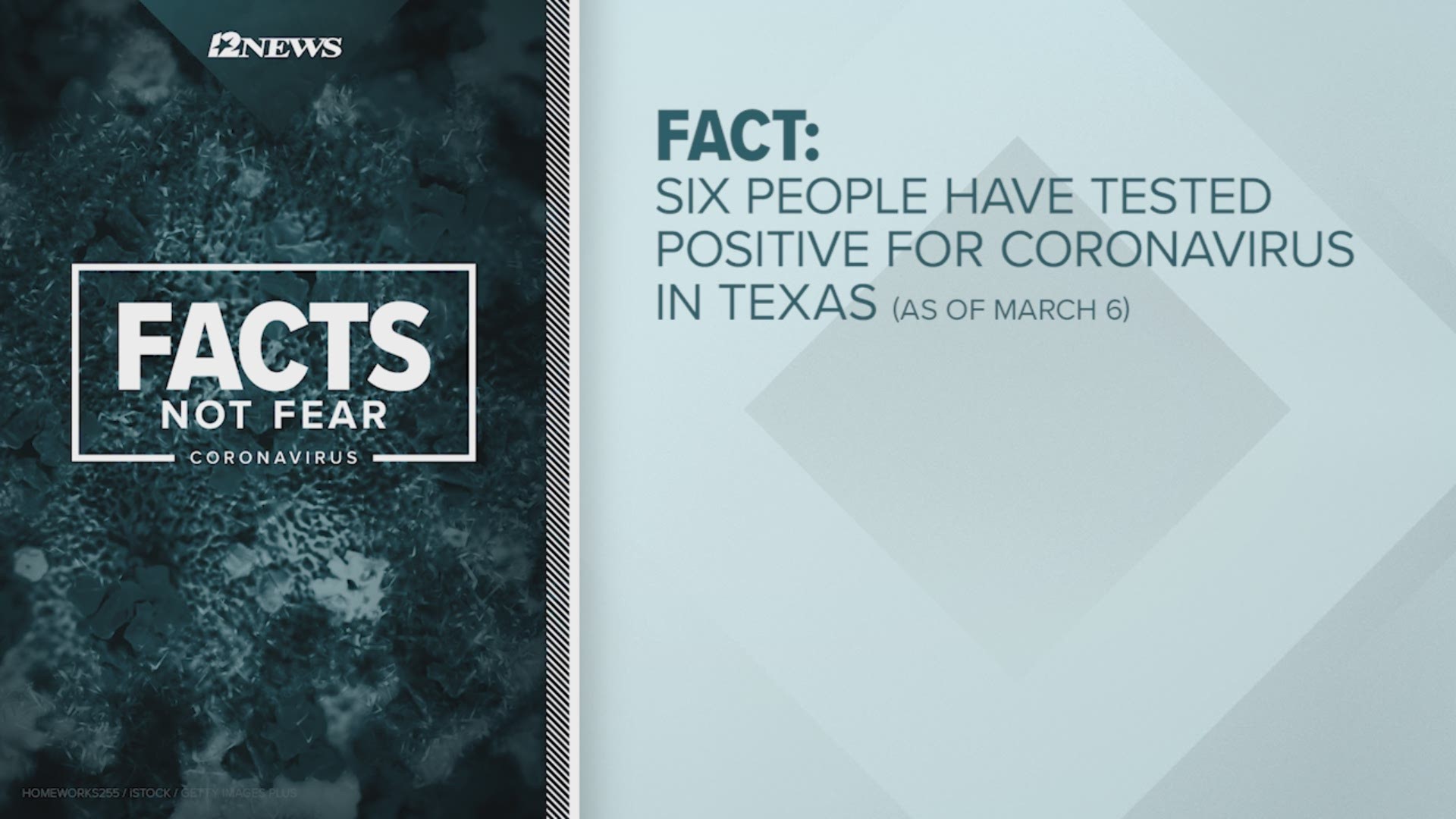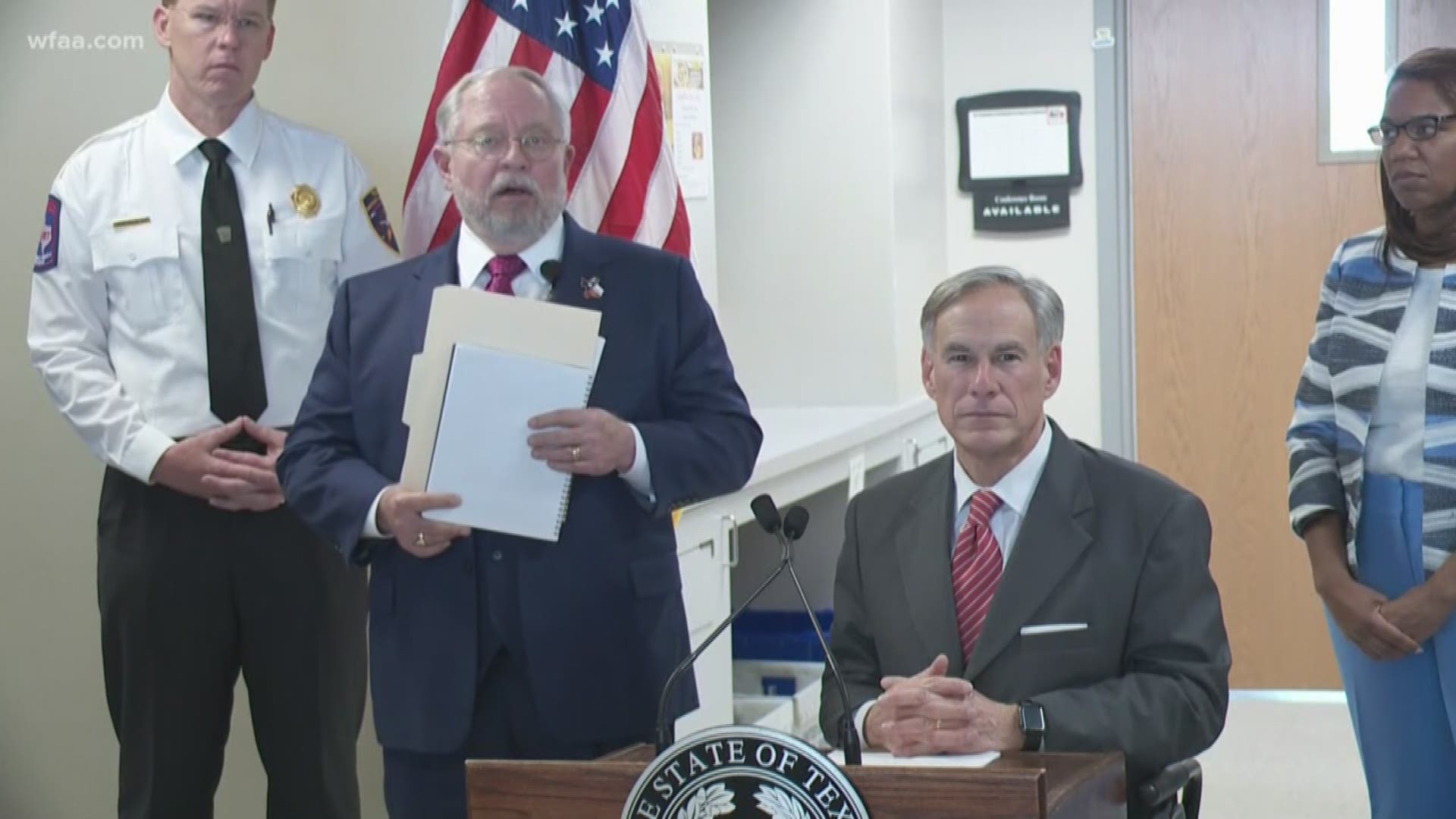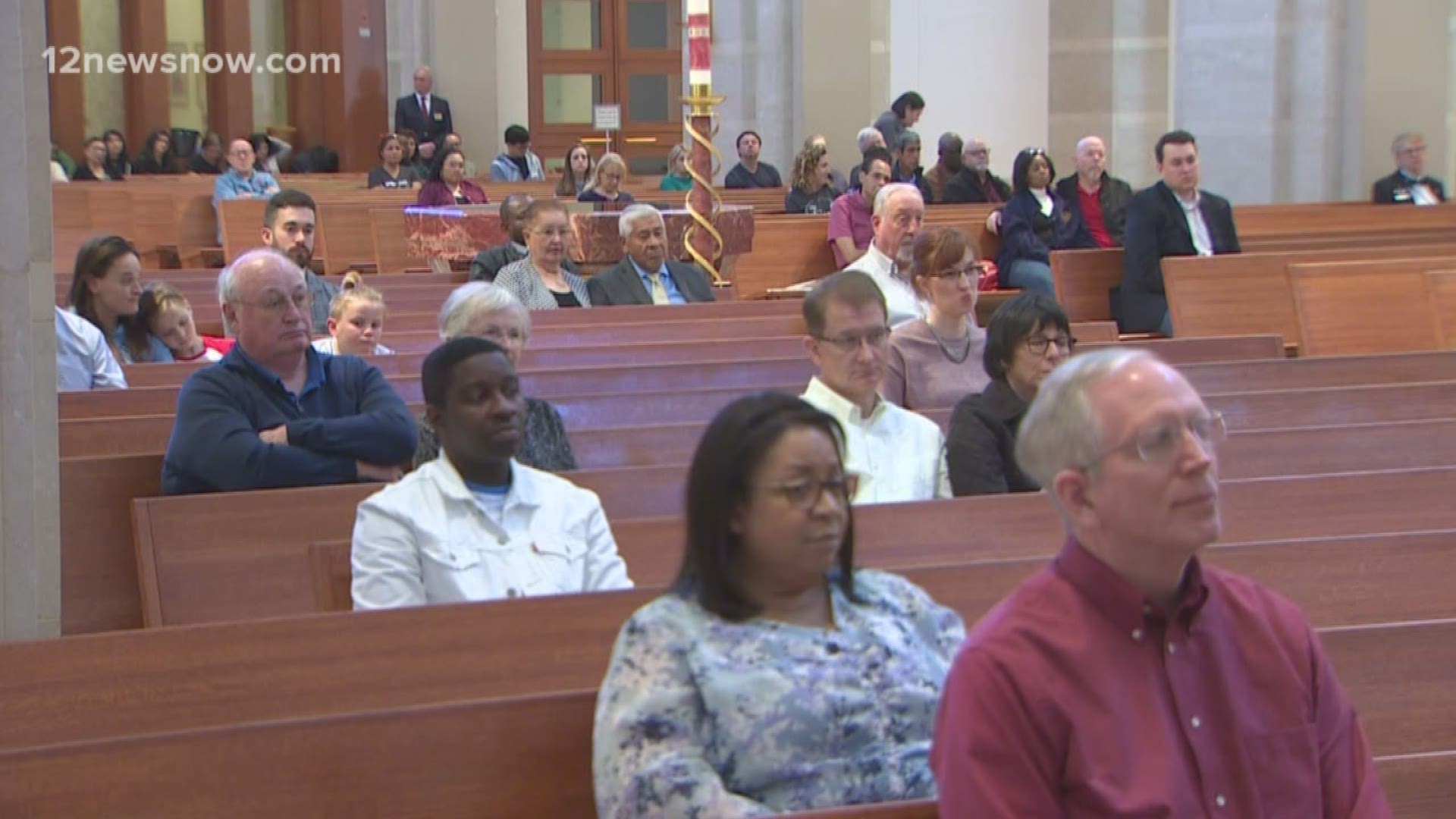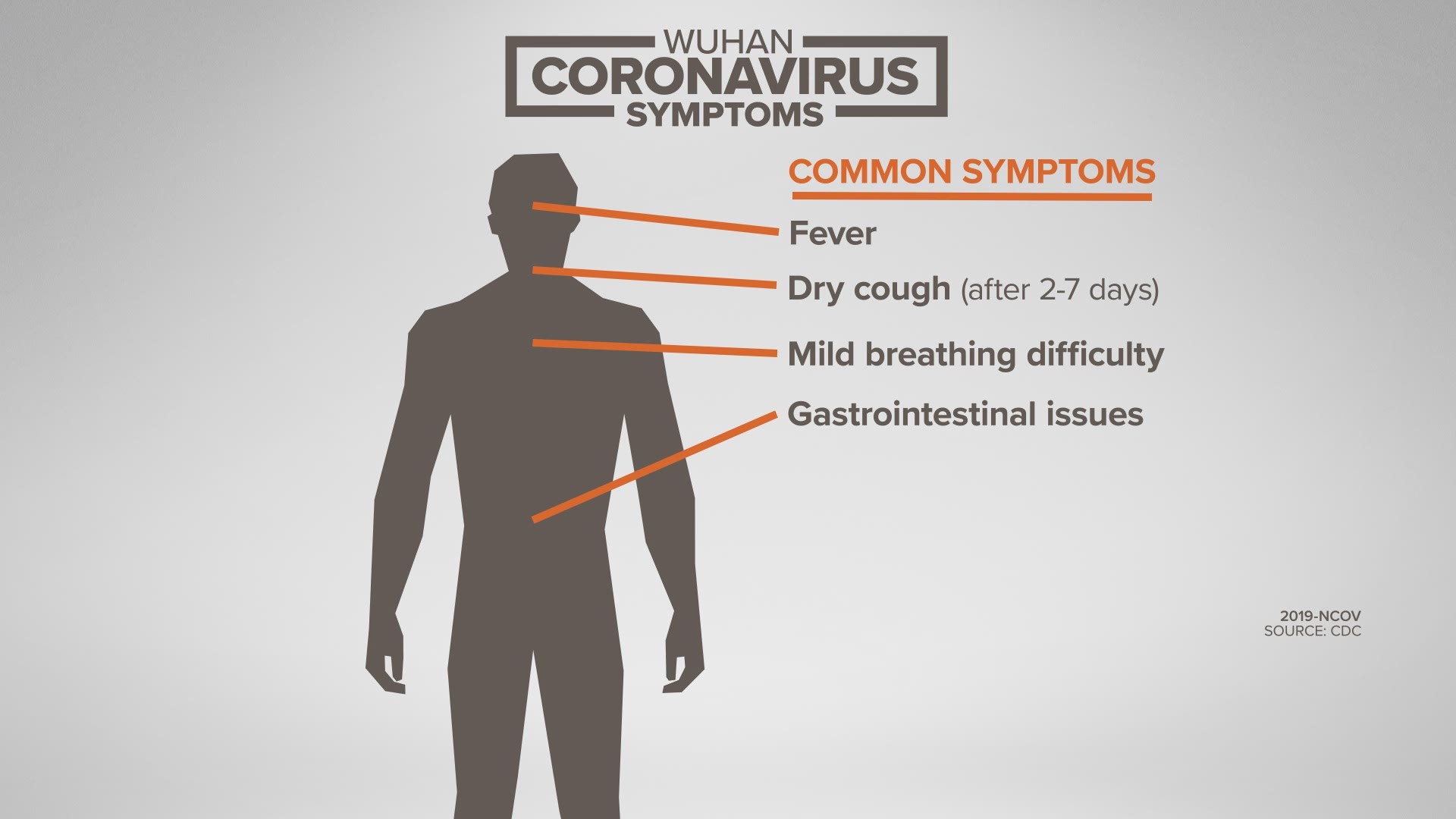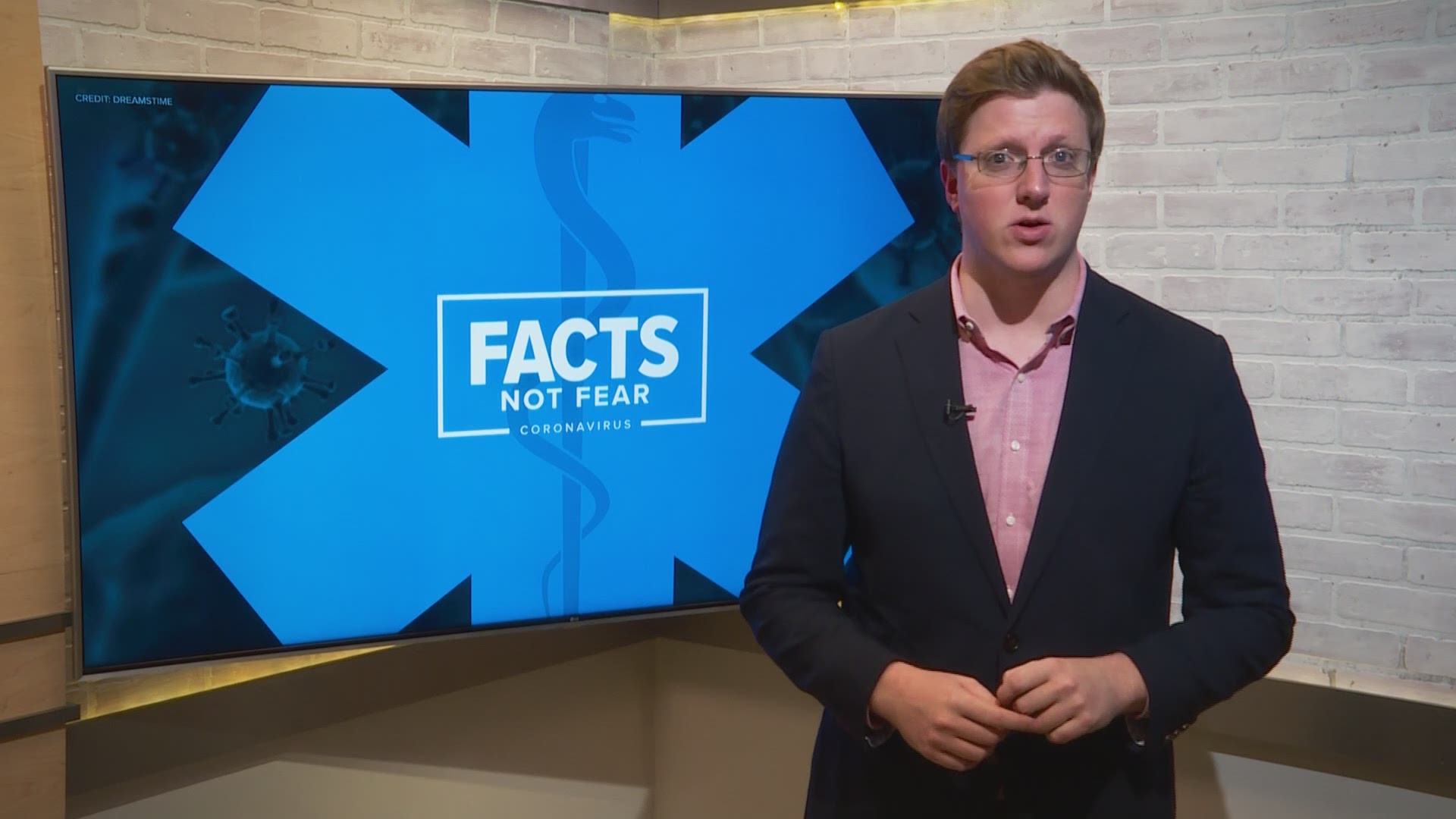BEAUMONT, Texas — There have been 22 confirmed and known cases of COVID-19, also known as coronavirus, in Texas.
Texas is not yet home to “community spread” of the disease — but U.S. health officials warned it is a matter of when, not if, an outbreak hits the U.S.
12News is committed to facts not fear about the virus and its impacts to Southeast Texas.
Here's what you need to know.
What cases have been confirmed in Texas?
There have been 11 cases from the Houston area. All 11 people were exposed overseas when they traveled to Egypt.
Five of those cases were identified in Harris County on March 5. Six cases were reported in Fort Bend County on March 4, March 6 and March 8.
The other 11 cases are all people who caught the COVID-19 disease overseas and were quarantined at Lackland Air Force Base in San Antonio.
State officials announced Sunday that roughly 100 passengers from a cruise ship that reported 21 cases of the virus were being sent to San Antonio's Lackland Air Force Base for quarantine.
There have been no confirmed cases of COVID-19 in Beaumont or the Golden Triangle as of March 9, 2020.
How is Texas testing for COVID-19?
A doctor can determine whether the test is necessary using guidance from the CDC. The test includes a mouth and nose swab. That sample is then sent to the nearest public health lab for testing.
Gov. Greg Abbott announced Thursday there are six public health labs open in Texas for COVID-19 testing, with plans to have four additional labs open by the end of month.
The current labs are in Austin, Houston, Dallas, El Paso, Lubbock and Fort Worth, and the additional labs will be in Tyler, San Antonio, Corpus Christi, and Harlingen.
Once all 10 are open, Abbott said the state lab network should be able to perform 125 tests a day.
How is COVID-19 impacting events in Texas?
The biggest impact from COVID-19 to Texas has been the cancellation of South by Southwest.
Austin city leaders declared a local disaster due to concerns about coronavirus spreading, leading to the spring festival being called off.
The 10-day event was scheduled to begin March 13.
"We are devastated to share this news with you," SXSW said in a statement. "'The show must go on' is in our DNA, and this is the first time in 34 years that the March event will not take place. We are now working though the ramifications of the unprecedented situation."
Lamar University has cancelled all study abroad trips for this school year.
The university made the announcement March 7 and said the decision was "out of care and concern for its faculty, staff and students."
"At this time with the prevalence of COVID-19 (Coronavirus) and its continuing spread across the world, the university is unwilling to risk one student’s health and safety," the university said in an announcement email.
Memorial Hermann in Houston is modifying its visitor policy across all Memorial Hermann acute-care and rehabilitation hospitals and Convenient Care Centers, effective Tuesday, March, 10, at 7 a.m. until further notice.
Rice has canceled in-person classes and undergrad teaching labs this week amid concerns about the coronavirus.
The campus remains open and scheduled events with fewer than 100 people are still happening.
The cancellation of classes is followed by spring break, giving the university two weeks off.
The University of Texas is working on a plan to take all of its classes online. UT is working on a contingency plan that could possibly go into place after spring break.
What is coronavirus & COVID-19?
Coronaviruses are a large family of viruses that cause illnesses ranging from common cold to more severe diseases, such as Middle East Repository Syndrome (MERS-CoV) and Severe Acute Respiratory Syndrome (SARS-CoV), according to the World Health Organization.
The coronavirus disease 2019, or COVID-19, is the name given to the disease caused by the strain of coronavirus that is responsible for the current outbreak.
COVID-19 first appeared in Wuhan, China in late 2019.
Symptoms of COVID-19 can include fever, cough and breathing trouble. Most develop only mild symptoms.
But some people, usually those with other medical complications, develop more severe symptoms, including pneumonia, which can be fatal.
Some percentage of people have nasal congestion or sore throat and a very small percentage of patients have gastrointestinal symptoms like diarrhea or nausea.
How does coronavirus compare with the flu?
Coronavirus comes with seasonal flu-like symptoms, including fever, cough, shortness of breath and difficulty breathing. Severe cases of the virus can lead to pneumonia, severe acute respiratory syndrome and kidney failure. It also can be deadly for a small percentage of the population, according to the World Health Organization.
Similar to respiratory illnesses like the flu, coronavirus spreads from person-to-person contact, such as coughing, sneezing or touching infected surfaces, according to the CDC. Both diseases are especially dangerous for people who are older than 65, but the flu is more dangerous for children and pregnant women.
Early reports indicate the coronavirus appears to be more contagious and have a higher fatality rate than the flu. But unlike the flu, there is no vaccine available to prevent or reduce cases of coronavirus.
Who is most at risk for COVID-19?
At least 80% of COVID-19 patients will recover with self-treatment and using over-the-counter drugs to help combat the virus.
However, individuals who are older, who have compromised immune systems or who have other preexisting conditions are at a higher risk of contracting COVID-19.
About 19% of adults may have a serious or critical illness requiring hospitalization. The groups that are the highest risk include the elderly (risk increases in a graded fashion with age), those who are
immunocompromised or those with chronic medical illnesses like lung disease, heart disease, obesity or diabetes.
According to Bookman, who is with CDPHE, you must be in close contact with someone who has COVID-19 for a significant period of time to catch the disease. "This is not a thing that's simply transmitted by walking past somebody, or evening having casual contact," Bookman said.
The CDC & WHO recommend the following precautions to avoid COVID-19:
- Avoid close contact with anyone who is sick
- Avoid touching your eyes, nose, and mouth with unwashed hands
- Stay home from school and/or work if you think you are sick
- Cover your coughs and sneezes with tissues, and then throw the tissues away
- Regularly use disinfectant products
- Continually wash your hands with soap and warm water for at least 20 seconds at a time, or hand sanitizer with at least 60% alcohol if water and soap are not available
What should you do if you think you contracted COVID-19?
If you believe you may have contracted COVID-19, you should contact your health care providers immediately.
Officials said it is vital to call ahead before going to a doctor's office or emergency room to prevent the spread of illness.
Callers should relay their symptoms, should mention if they have potentially been exposed to someone with COVID-19, and should mention any recent travel to a country experiencing community spread.
Should I cancel my travel plans?
There is a higher risk of contracting COVID-19 when surrounded by other people in an enclosed space, which happens often when traveling.
Health experts say that there is a risk of contracting COVID-19 when traveling no matter how young or health you are.
Right now, there are no travel advisories in place for people flying around the United States.
The CDC is asking you to self-quarantine for 14 days if you travel to an area with widespread or ongoing community spread of COVID-19.
Those areas include China, Iran, Italy and South Korea.
The CDC says because of the unusual nature of the coronavirus outbreak, the U.S. government is advising American travelers, particularly those with underlying health issues, to defer cruise ship travel.
This is a dynamic situation and those traveling by ship may be impacted by travel restrictions affecting their itineraries or ability to disembark or may be subject to quarantine procedures implemented by the local authorities. While the U.S. government has successfully evacuated hundreds of our citizens in the previous weeks, repatriation flights should not be relied upon as an option for US citizens under the potential risk of quarantine by local authorities. U.S. citizens should evaluate the risks associated with choosing to remain in an area that may be subject to quarantine and take the appropriate proactive measures. Passengers who plan to travel by cruise ship should contact their cruise line companies directly for further information on the current rules and restrictions and continue to monitor the travel.state.gov website for updated information.

